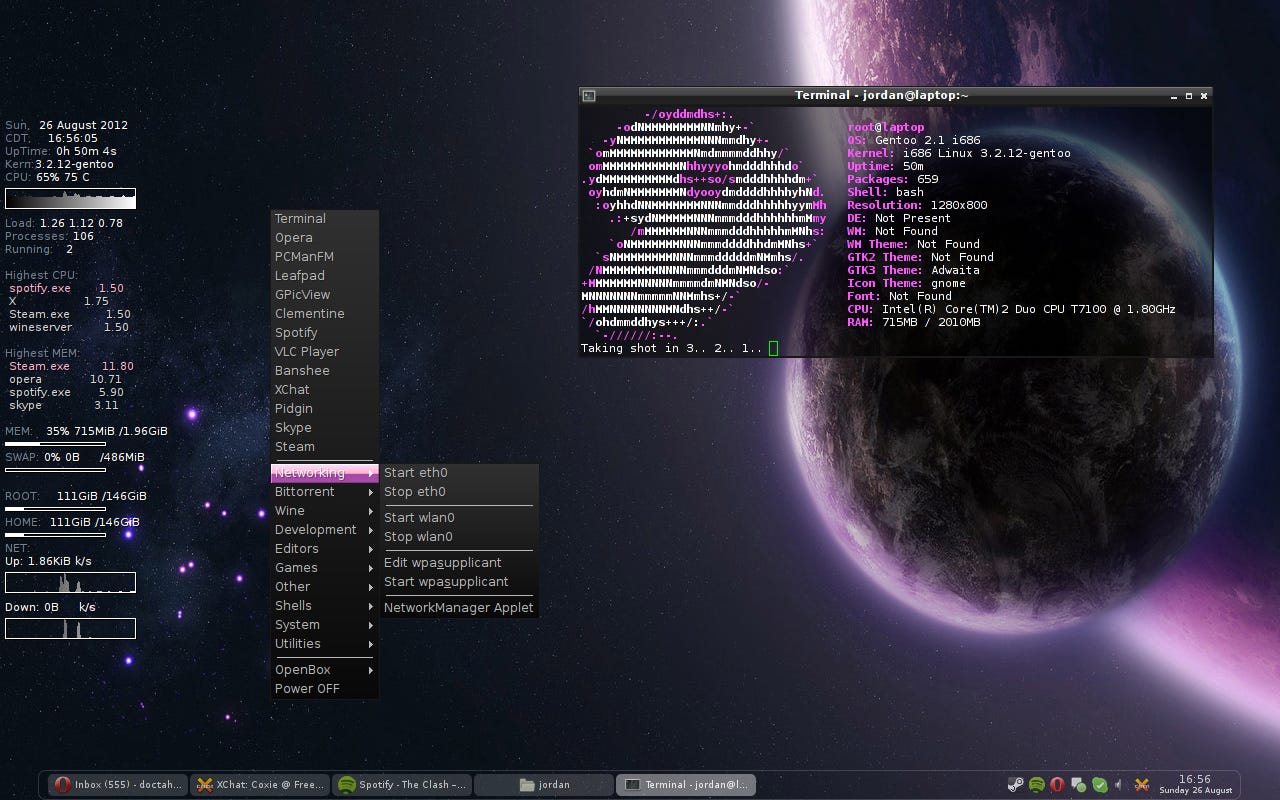From Source to Soul: My Gentoo Linux Journey (2008–2013)
Five years of compiling, customizing, and controlling every atom of my computing experience
Between 2008 and 2013, I wasn’t just using Gentoo Linux, I was shaping my machines down to the atom. For five years, Gentoo was more than an OS to me. It was a mindset, a way of building and understanding a system from the inside out.
Back then, I had two self-assembled desktop machines: 🖥️ One at home 🖥️ One at work
Both were hand-picked and built around identical architectures. Same motherboard socket. Same chipset. The only variation was in CPU power and RAM. This wasn’t for show… it was a deliberate move. Why?
One emerge, two machines.
I wanted to build and maintain one system image. A single, optimized Gentoo build, and run it across both desktops. Same OS. Same configurations. Just different data directories.
That was the magic of Gentoo: source-based, customizable, and modular. I could:
Tailor every package to my exact CPU flags (-march=native, anyone?)
Control every aspect of system behavior via USE flags
Optimize boot, startup, and runtime performance
Share compiled packages between both systems using binary package sets
Use rsync to clone root filesystems and keep /home and /etc differences isolated
It was the kind of setup that rewarded precision. Gentoo didn’t babysit. If you broke something, you fixed it, or you learned something. Often both.
Why go through all that effort?
Because Gentoo taught discipline. It forced you to understand what your system was doing. No magical scripts were abstracting away logic. You compiled your world with emerge, you watched the flags fly by, and you knew exactly what was going into your machine.
More importantly, Gentoo gave you trust in your environment. When I deployed code, I knew the OS wasn’t a black box. I owned every layer.
What I Learned
Looking back, those years shaped how I build and think today, especially in DevOps, system design, and even smart contract environments where resource limits matter. A few things still stick with me:
Customization isn’t a luxury. It’s a power tool when done right.
Understanding the system deeply always pays off, even if the ROI isn’t instant.
Simplicity at the surface often hides deep complexity underneath. Gentoo taught me to embrace the complexity, not fear it.
Is Gentoo Still Relevant Today?
The hell I know. I use MacBooks from ~15 years by now. But I still play a lot with my Linux servers toys.
Anyway…
Gentoo wasn’t just an OS. It was training for the kind of engineering where control, responsibility, and curiosity go hand in hand.
🧠 Would I do it again in 2025?
Only if I want to really enjoy compiling Chromium for three hours. But yes, in my spiri,t Gentoo is still part of how I think.
If you were ever a Gentoo user, or still are, I’d love to hear how it shaped your thinking too and most importantly, what did you love about Gentoo Linux the most?
Hey, if you're an Arch fan, please post an article about it. I would probably restart on my laptop an Arch Linux.
The main difference? Arch has a better organized package manager than emerge, plus a stronger and wider community.
Cheers Gentoo Penguin 🐧





